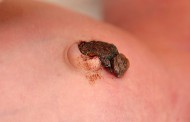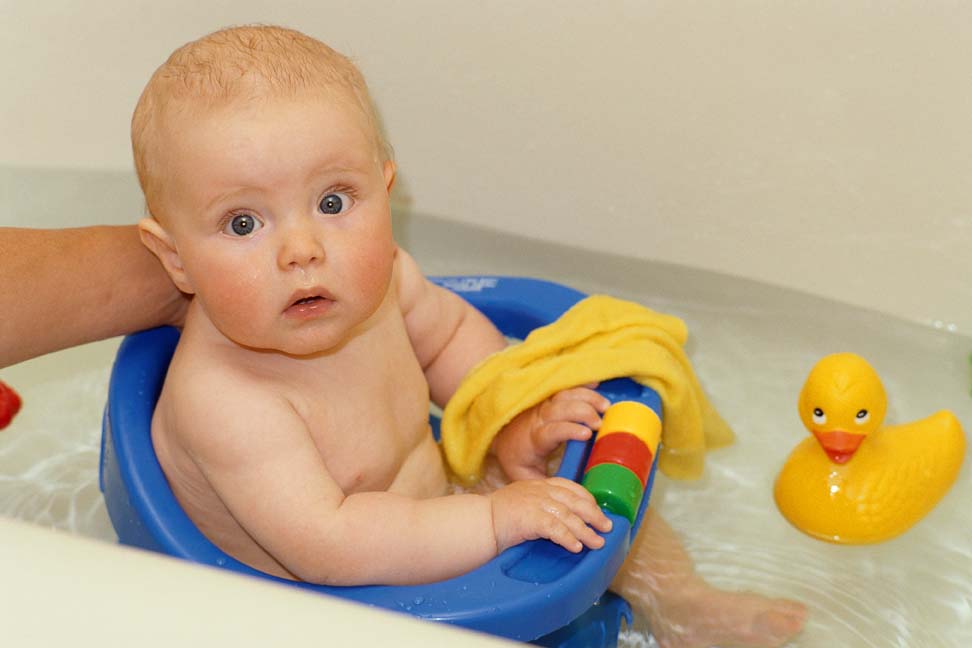Lipid (Cholesterol) Screening Heart disease is one of the leading causes of death in the United States. One of the factors that contributes to heart disease is high cholesterol levels, and w... Read more
All babies spit up at times. It is almost always normal and does not usually cause fussiness in babies. The spit up itself is not a problem. Spitting up is one of the most common ques... Read more
how to know baby is ready to go home, AAP has addressed this issue Nothing abnormal that would require continued hospitalization (somewhat obvious) normal vital signs, and consistent stable... Read more
Your baby’s first heart test Using a very simple test you have likely had yourself, we can screen babies for some of the most severe congenital heart conditions. Heart defects are the most c... Read more
http://pediatrics.aappublications.org/content/120/4/898.extract Joint Committee on Infant Hearing. Year 2007 Position Statement: Principles and Guidelines for Early Hearing Det... Read more
It’s something of a ritual: the cutting of the umbilical cord. Often the father or other family member or someone attending the birth is allowed to cut the cord attaching mother and baby, co... Read more
Babies are at risk of catching hepatitis B from their mothers and from contact with others who are infected. Giving the first dose of the vaccine after birth is highly effective at preventin... Read more
The Apgar score, named after the doctor who invented it, is a way of assessing the baby’s alertness and responsiveness. A low Apgar score may indicate that the baby has a depressed response... Read more
Antibiotic eye drops or ointment are recommended for all babies after delivery to prevent eye infection with gonorrhea. During the birth process, newborns come into contact with the bacteria... Read more
Our bodies require vitamin K to make our blood clot. Vitamin K comes from the diet (mostly in green leafy vegetables) and from bacteria in the intestines that make vitamin K as well; most he... Read more
Believe it or not, for several reasons the timing of your baby’s first bath has changed in recent years. Until recently, babies were usually bathed shortly after birth. Babies are covered wi... Read more
Diaper rashes are extremely common in infants and toddlers. They are usually caused by skin irritation from urine and stool and the constantly wet environment in the diaper area. Because yea... Read more
The FDA has licensed a new DTaP-IPV vaccine manufactured by Sanofi Pasteur to be used as the booster dose at 4-6 years of age. The first such vaccine, Kinrix, was licensed in 2008. It is app... Read more
Usually, when parents are concerned about their baby’s sleep, it is about how to get them to sleep: better, sounder, longer. Parents are often quite desperate for some uninterrupted sleep. H... Read more
There are many wonderful snack ideas for toddlers that are healthy, creative, and fun. Watch out for many parenting and healthy eating websites which seem to list raw vegetables as a healthy... Read more
Should children use retail-based clinics for heath care? The short answer: no; it is almost never a good option for kids. Retail-based clinics (RBCs), such as Minute Clinic (CVS) and Walgree... Read more
Umbilical hernias are common in children, occurring in up to 10-20% of infants. For reasons that are unclear, they are much more common in black children. They are also more common in premat... Read more
Belly buttons seem to fascinate young kids, a fact not missed by authors of children’s books and the writers of VeggieTales songs. It can also be a concern for parents, and it is true that t... Read more
Umbilical granulomas occur when the cord falls off and the remaining tissue underneath fails to form skin over it. It is a relatively common condition. What are the symptoms? It appears as a... Read more
Most parents are aware that a number of vaccines are given to infants and young children to protect them from serious and sometimes deadly diseases. But did you know that mothers, fathers, s... Read more
There are a number of foods that are not safe for toddlers to eat. They can choke on hard foods like nuts and get small pieces of the food in their lungs. Larger, round pieces of food can lo... Read more
Many parents find feeding their toddler to be a challenge. These are the ten most important facts and tips to remember when feeding your toddler. Toddlers transition to whole milk from 12-24... Read more
It is important to start caring for your baby’s teeth as soon as she has any! Tooth decay can affect baby teeth and this can cause a number of problems, from infections to bad breath to feed... Read more
When should your child's first dental visit be? Short answer: When the first tooth appears, or by one year of age. That is the official recommendation. My answer: As above for any child... Read more
I had a mom ask a great question today. She had heard of the risks of improper infant swaddling and hip dysplasia, and asked in infant carriers posed any risk. The answer is no, as long as t... Read more
Children love to play outside, and they should as much as possible. But with playing outside come several risks, especially in the summer, including biting and stinging insects and arachnids... Read more
Ticks are a common complaint in children, who often play outside. They are small brown bugs (arthropods) that feed off the blood of animals, including humans. Ticks have three phases in thei... Read more
Conjunctivitis (“pink eye”) is a common infection in children. It often occurs with a cold. It can be caused by cold viruses or by bacterial infections. Bacterial pink eye is usually trea... Read more




